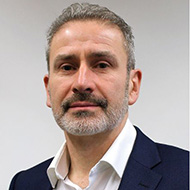Fewer waterbirds travelling to winter in UK
The ringed plover is among the species which have seen a decline in UK numbers in the last 25 years.
Fewer waterbirds are travelling to the UK for the winter, the annual Wetland Bird Survey has revealed.
The report for 2022/23, which also includes data from the Goose and Swan Monitoring Programme, shows that species which normally come to the UK to escape harsh winter conditions in northern and eastern Europe are no longer arriving in such large numbers.
As the climate in those regions becomes milder and damper, the birds are remaining closer to their breeding grounds.
For example, the number of Bewick’s swans travelling to UK has declined by 96 per cent in the past 25 years, with goldeneye numbers dropping by 50 per cent, and dunlin by a third. The Bewick’s swan is also experiencing a decline in its breeding population.
However, some birds that would leave the UK for the winter to travel to southern Europe, such as the black-tailed godwit, are now staying.
The data for the survey was collected by more than 3,800 volunteers who carried out counts in 3,325 wetlands across the UK.
Simon Wotton, senior conservation scientist at the Royal Society for the Protection of Birds (RSPB), said: “The Wetland Bird Survey, alongside the Goose and Swan Monitoring Programme is an invaluable tool for better understanding the impact of climate change on our wintering waterbirds that typically breed further north and east.
“The scientific community owe a debt of gratitude to the volunteers whose coordinated efforts make these long-term studies possible.”
The Wetland Bird Survey is project managed by the British Trust for Ornithology (BTO), the RSPB, and the Joint Nature Conservation Committee (JNCC). The Goose and Swan Monitoring Programme is coordinated by BTO, JNCC, and NatureScot.
The full report can be read on the BTO’s website.
Image © Shutterstock



 NOAH has elected its board team, as part of its annual general meeting.
NOAH has elected its board team, as part of its annual general meeting.